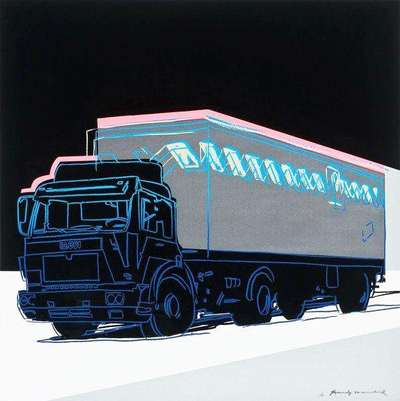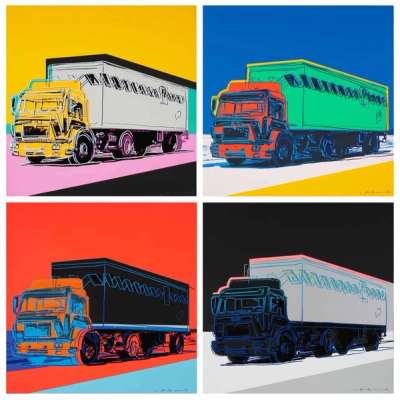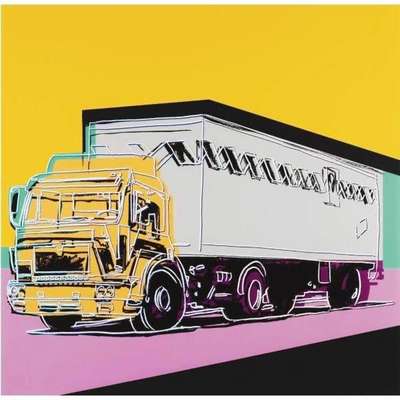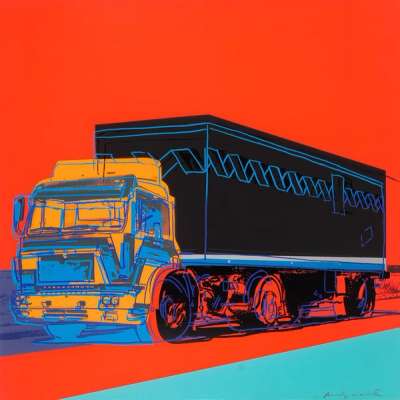
Truck (F. & S. II.368)

Truck (F. & S. II.368)
Signed Print
Andy Warhol
£25,000-£40,000Value Indicator
$50,000-$80,000 Value Indicator
$45,000-$70,000 Value Indicator
¥230,000-¥370,000 Value Indicator
€30,000-€50,000 Value Indicator
$250,000-$410,000 Value Indicator
¥4,880,000-¥7,810,000 Value Indicator
$35,000-$50,000 Value Indicator
AAGR (5 years) This estimate blends recent public auction records with our own private sale data and network demand.
There aren't enough data points on this work for a comprehensive result. Please speak to a specialist by making an enquiry.
Medium: Screenprint
Edition size: 60
Year: 1985
Size: H 100cm x W 100cm
Signed: Yes
Format: Signed Print
TradingFloor
Track this artwork in realtime
Watch artwork, manage valuations, track your portfolio and return against your collection
Meaning & Analysis
Andy Warhol’s 1985 signed screen print, Truck (F.&S.II.368) features a cargo truck rendered in red and green against a blue and yellow background. This bold contrast of primary and secondary colours draws the eye in to an everyday subject and elevates it to “high culture.” Printed on Lennox Museum Board, this particular image comes an edition of sixty, excluding fifteen hors-commerce impressions.
The larger series features four distinct compositions featuring the lorry. The German Federal Road Haulage Association (BFD) commissioned the series from Warhol in anticipation of the 20th World Congress of the International Road Transport Union held in Frankfurt am Main in 1986. Warhol co-published Trucks with Hermann Wünsche, a German art dealer who served as an early advocate for Warhol’s work in Germany. Warhol had a productive collaboration with the German art scene during his career, producing portraits of the famed German artist Joseph Beuys. However, Truck draws more from Warhol’s earlier fascination with elevating the everyday object as with his soup cans and brillo boxes.
Andy Warhol was a leading figure of the Pop Art movement and is often considered the father of Pop Art. Born in 1928, Warhol allowed cultural references of the 20th century to drive his work. From the depiction of glamorous public figures, such as Marilyn Monroe, to the everyday Campbell’s Soup Can, the artist challenged what was considered art by blurring the boundaries between high art and mass consumerism. Warhol's preferred screen printing technique further reiterated his obsession with mass culture, enabling art to be seen as somewhat of a commodity through the reproduced images in multiple colour ways.



